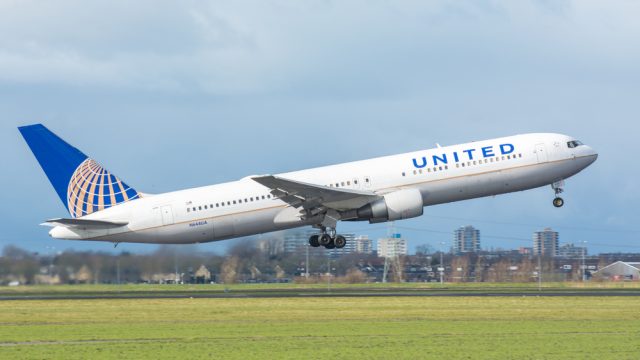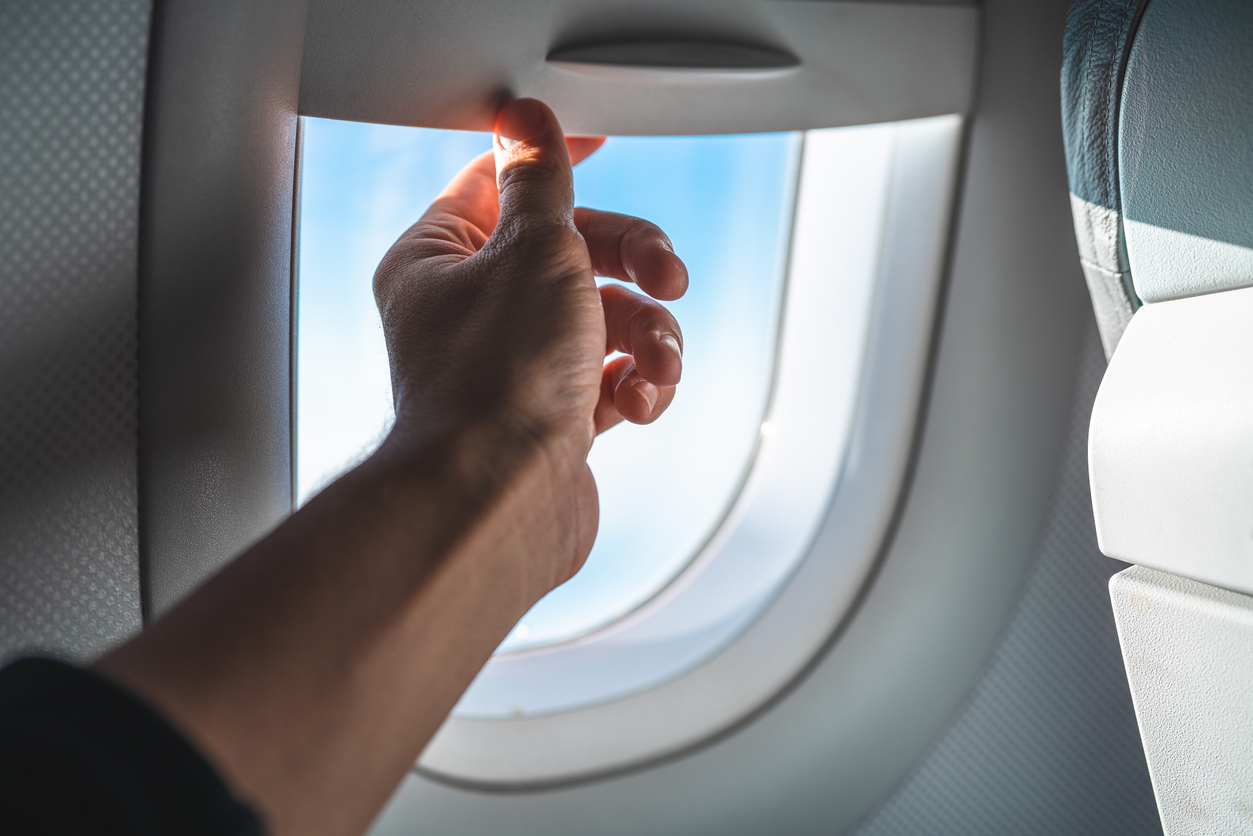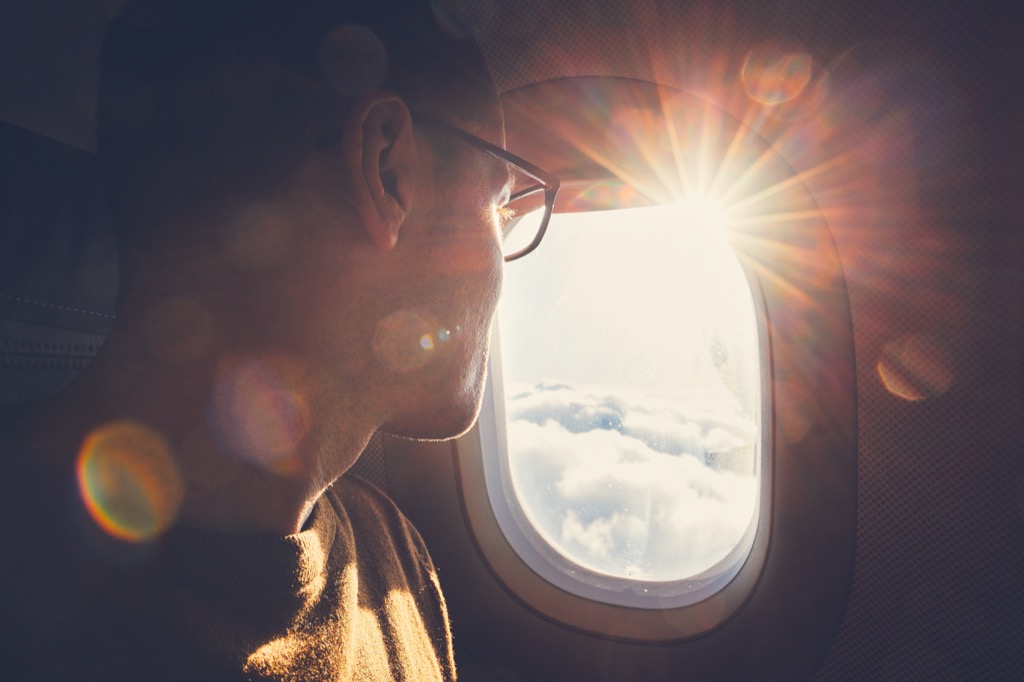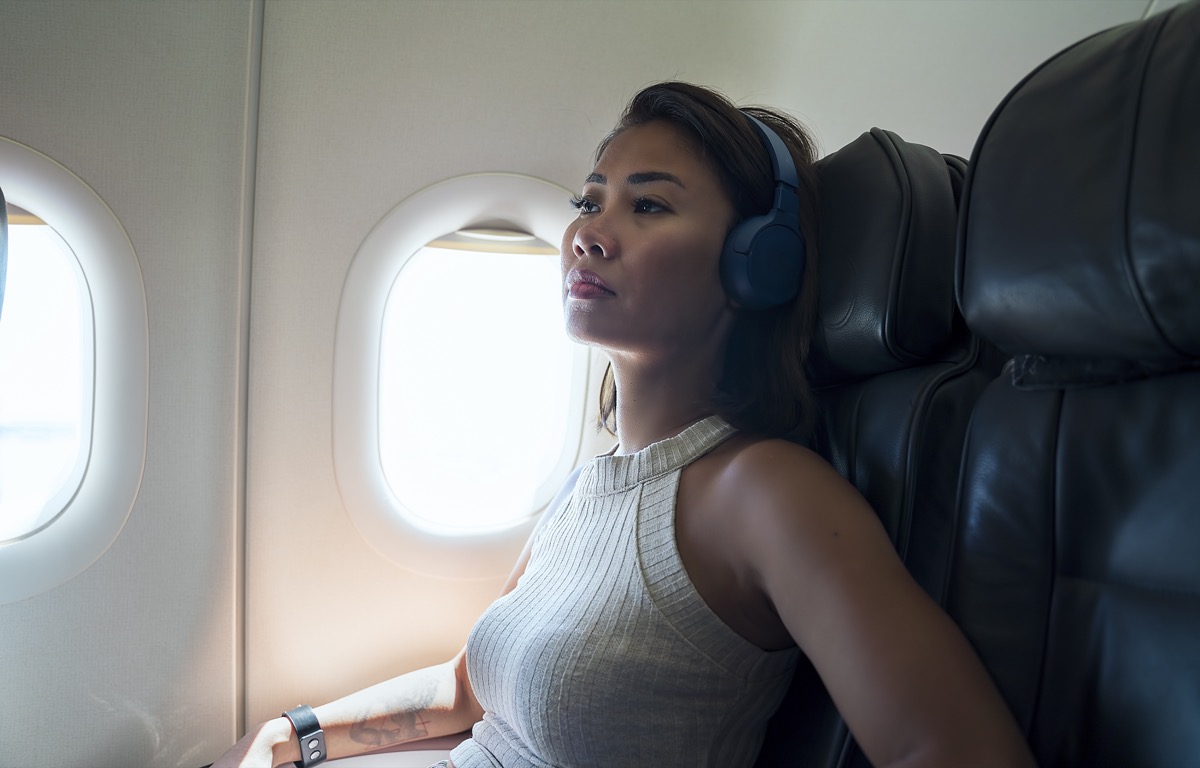United Airlines Is Now Letting Passengers Ditch This Safety Precaution

Specific rules on airplanes are clearly in place to ensure the well-being of everyone on board. Requirements such as fastening your seatbelt, stowing your tray table for takeoff and landing, and not making any calls with your phone have been in place for years to avoid any serious incidents, accidents, or injuries during flights. Others, including how you stow your backup battery chargers or travel with service animals, have even been added as technology and travel norms have changed. But now, United Airlines has decided to ditch one safety measure on its planes going forward. Read on to see what you’re now free to do about the cabin.
RELATED: Delta Will Finally Let You Do This on Flights, as of March 15.
United Airlines is now letting passengers close their window shades during takeoff and landing.

In an internal memo to flight crew, United Airlines told staff that it would be getting rid of a safety precaution requesting passengers fully raise their window shades during takeoff and landing that’s been in place for the past two years, travel news outlet Paddle Your Own Kanoo reports. The company cited the fact it was the only major U.S. airline to enforce such a policy as the main reason for the change in the announcement.
The window shade rule is mandated in almost every other country besides the U.S.

Unlike most other countries, the U.S. is one of the few places where no regulations are in place that require window shades on commercial planes to be open during takeoff and landing. And while it may seem like a strange rule, experts explain that the request to keep a view of the outside clear is in the best interest of the passengers in case anything goes wrong.
“From a safety standpoint, open shades help improve situational awareness,” a representative from the Flight Safety Foundation tells Condé Nast Traveler. “For example, during an emergency evacuation, flight attendants or passengers need to be able to see outside to determine whether it’s safe to open and use an emergency exit. You don’t want to send someone out an over-wing exit if the engine on that side is still running or on fire.”
Still, regulators in the U.S. have held back from making the policy mandatory. “The [Federal Aviation Administration] FAA does not regulate the position of window shades,” a representative for the FAA told Condé Nast Traveler in an email. “Upright seatbacks and stowing tray tables and large electronics before takeoff and landing are safety items to ensure the aisles and seat rows are unobstructed in case an emergency evacuation becomes necessary. All of the required items are part of the pre-flight briefing, such as pointing out exits, floor lighting, oxygen masks, and seat belts. Pretty much everything else is left to airline policy.”
RELATED: For more up-to-date information, sign up for our daily newsletter.
Other experts have argued that keeping windows open is best for safety.

Lowering window shades may be the best way to keep the cabin dim enough for passengers to sleep or watch seatback entertainment. But some industry professionals argue that there’s a solid argument for mandating they stay up during taxi and takeoff, which is statistically when an incident is most likely to occur. In some cases, it can even help prevent an accident from happening.
“Passengers are curious; hence they are perfect extra eyes to see if something goes wrong out there. Usually, passengers report stuff right away,” Saran Udayakumar, an aviation safety officer, told Quora users during an online discussion.
And besides being able to see outside, there’s another visibility factor in the argument for keeping shades open. “If you’ve somewhat acclimatized to low light conditions before an unfortunate incident occurs, you’ll have a visual capacity which initially may exceed 1,000 times better compared to if you were suddenly plunged into the darkness and had 90 seconds to disembark from the aircraft,” David Robinson, an aeronautical industry professional, wrote in the Quora discussion.
Crew members will still request passengers to lower window shades on hot days to help keep the cabin comfortable.

While United may be ditching the policy of requesting window shades stay open during departure and arrival, it will continue asking passengers to lower them after landing on warm days to avoid excessive heat in the cabin, Paddle Your Own Kanoo reports. Flight attendants will also still encourage passengers in exit rows to open their shades before wheels up and touchdown, but they are not required to do so.
Ultimately, the airline’s staff did not welcome the latest change. “The policy United adopted in 2020 was simply a request to passengers. It was the right thing to do for safety, and any passengers who met our request by opening their window shade did something to add a little more to the level of safety onboard,” the Association of Flight Attendants (AFA-CWA), which represents United’s crew members, wrote in a response letter.
“If it raises the level of safety, it is difficult not to ask, what is the harm? For some reason, it is okay to request passengers close their window shade after arrival under hot/sunny conditions for cabin comfort, however, when it comes to safety, it is no longer [standard operating procedure] to request all of our passengers seated near the window seat to open their window shade during critical phases of flight. This seems backward and, candidly, contradicts what’s right for safety.”
RELATED: American Airlines Is Getting Rid of This on Flights, Starting Tomorrow.